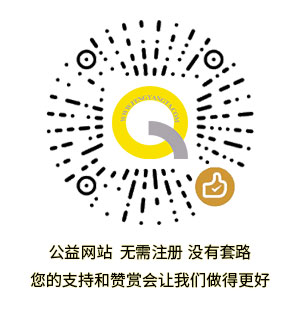【问题】 Wouldyouratherwatchanewmovieoranoldfavorite?Wouldyouratheroradishyouhaveneverhadatarestaurant,or(1)______withsomethingyouknowyouwilllike?Researchersstudyingthe"mere-exposureeffect(曝光效应)"havefoundthatweoftenpreferthefamiliaroverthe(2)______. In1968,socialp
Wouldyouratherwatchanewmovieoranoldfavorite?Wouldyouratheroradishyouhaveneverhadatarestaurant,or(1)______withsomethingyouknowyouwilllike?Researchersstudyingthe"mere-exposureeffect(曝光效应)"havefoundthatweoftenpreferthefamiliaroverthe(2)______. In1968,socialpsychologistRobertZajoncpublishedalandmarkpaperonthemereexposureeffect.Hishypothesis(假说)wasthatsimplybeingexposedtosomethingona(3)______basiswasenoughtomakepeoplelikethatthing,Totestthis,Zajonchadparticipantsreadwordsinaforeignlanguageoutloud.He(4)______howoftenparticipantsreadeachword(upto25repetition).Next,participantswereaskedtodecidehowpositiveornegativetheythoughtthemeaningofthewordwas.Zajoncfoundparticipants(5)______wordsthattheyhadsaidmoreoften,whilewordsthatparticipantshadn'treadatallwereratedmorenegatively,andwordsthathadbeenread25timeswereratedhighest. InthedecadessinceZajoncpublishedhispaperonthemereexposureeffect,researchershave(6)______severaltheoriestoexplainwhytheeffecthappens.Oneofthemisthatmereexposuremakesusfeellessuncertain.Wetendtobe(7)______aroundnewthings,sincetheycouldbedangerous.However,whenweseethesamethingoverandoverandnothingbadhappens,westarttorealizethatthere'snothingtobeafraidof.(8)______,themereexposureeffectoccursbecausewefeelmorepositivelyaboutsomethingfamiliarcomparedtosomethingthatisnewandpotentiallydangerous. (9)______,mereexposureincreaseswhatpsychologistscall"perceptualfluency(知觉流畅性)",whichisbasedontheideathat,whenwe'veseensomethingbefore,it'seasierforustounderstandandinterpretit.Thinkabout,(10)______,theexperienceofwatchingacomplexfilm.Thefirsttimeyouwatchthefilm,youmightfindyourselfstrugglingto(11)______what'shappeningandwhothecharactersare.However,ifyouwatchthemovieasecondtime,the(12)______andplotwillbemorefamiliartoyou:psychologistswouldsaythatyou(13)______moreperceptualfluencyonthesecondviewing. Whilepsychologistsarestilldebatingwhatcausesthemereexposureeffect,itseemsthathavingbeenpreviouslyexposedtosomethingcan(14)______howwefeelaboutit.Anditmayexplainwhy,atleastsometimes,wetendto(15)______thingsthatarealreadyfamiliartous.(1)A.exchangeB.stickC.identifyD.connect(2)A.newB.popularC.favoriteD.unique(3)A.positiveB.temporaryC.short-termD.repeated(4)A.restrictedB.determinedC.concludedD.varied(5)A.studiedB.speltC.likedD.chose(6)A.changedB.suggestedC.concealedD.traded(7)A.cautiousB.curiousC.consciousD.adventurous(8)A.OntheotherhandB.AfterallC.InotherwordsD.Asaresult(9)A.HoweverB.ConsequentlyC.AdditionallyD.Therefore(10)A.bycomparisonB.withoutdoubtC.inrealityD.forexample(11)A.takechargeofB.keeptrackofC.makeuseofD.getridof(12)A.effectsB.strugglesC.charactersD.concepts(13)A.analyzedB.definedC.discoveredD.experienced(14)A.changeB.interpretC.promoteD.illustrate(15)A.supportB.preferC.deliverD.notice
正确答案:(1)B.考查动词及语境理解。 A.exchange交换; B.stick坚持; C.identify识别; D.connect连接。 根据下文something you know you will like可知,此处是指坚持吃你知道你会喜欢的东西。故选B.
(2)A.考查形容词及语境理解。A.new新的; B.popular流行的; C.favorite最喜爱的; D.uni
题目解析:
这是一篇说明文。 文章介绍了"曝光效应"的概念和研究者们对这种现象的研究。
点评:
非等距离挖空的命题方式是完形填空的最大特色。短文首句不挖空,以便为考生理解全文留下足够信息,命题者根据考查目的进行挖空,造成信息链中断,这就要求考生依据上下文的文意捕捉到空白处的缺词。从近几年高考完形填空题看,纯语法知识几乎不考,主要考查考生灵活运用所学词汇的能力,尤其是以考查实词或信息词为主,着重考查考生对文章的内在逻辑和整体把握能力。因此,把握句间和段落之间的内在逻辑关系,通过上下文暗示,对篇章、段落或句意的整体把握;再则,干扰项的设置与语法结构无甚关系,重在文意干扰。因此,把握文意和具体语境,通过对词义的辨析,是解完形填空的最好手段。
 搜题,就来5TiKU.com题库
搜题,就来5TiKU.com题库